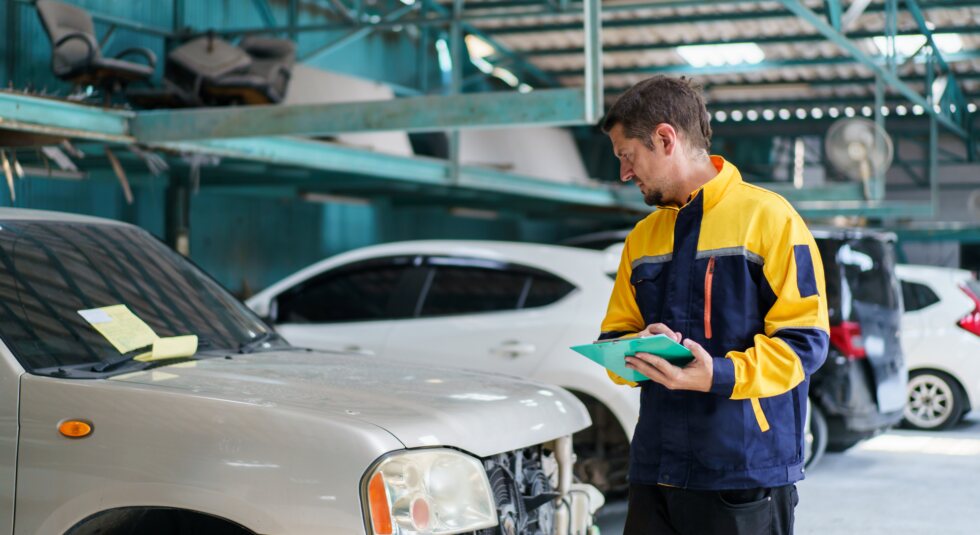Car maintenance is one of those topics where everyone seems to have an opinion. Whether it’s advice passed down from family, something you heard at the auto shop, or a tip you picked up online, it can be hard to tell fact from fiction when it comes to keeping your car in top shape.
Some car maintenance myths waste your money, while others could lead to serious damage if you follow bad advice. In this blog, we’ll debunk some of the most common car maintenance myths and uncover the truth about what really matters when taking care of your vehicle.
Myth #1: You Must Change Your Oil Every 3,000 Miles
Fact: Most Modern Cars Can Go 5,000 – 10,000 Miles Between Oil Changes
For years, drivers were told to change their oil every 3,000 miles or risk serious engine damage. This rule might have applied to older cars, but modern engines and synthetic oils have changed the game.
What Really Matters:
- Most cars today can go at least 5,000 miles between oil changes, and some can even reach 7,500 to 10,000 miles before needing fresh oil.
- Check your owner’s manual for the recommended oil change interval for your specific vehicle.
- If your car uses synthetic oil, it lasts longer and provides better protection than conventional oil.
If you’re changing your oil every 3,000 miles, you’re probably wasting money and time on unnecessary service.
Myth #2: Premium Gas Will Make Your Car Run Better
Fact: If Your Car Doesn’t Require Premium, It Won’t Benefit From It
Gas stations love to advertise premium fuel as “better” for your engine, but for most vehicles, it won’t make any noticeable difference.
What Really Matters:
- Premium fuel (91-93 octane) is designed for cars with high-performance engines or turbochargers. If your car doesn’t require it, it won’t improve performance or fuel efficiency.
- Using regular unleaded (87 octane) in a car that recommends premium might slightly reduce performance but won’t damage your engine.
- The only time premium fuel is worth the extra cost is if your car specifically requires it, not just recommends it.
If your owner’s manual says regular gas is fine, you’re just wasting money by filling up with premium.
Myth #3: You Should Always Warm Up Your Car Before Driving in Cold Weather
Fact: Modern Engines Don’t Need Long Warm-Ups
Many people still believe that in cold weather, you need to let your car idle for several minutes before driving. While this was true for older carbureted engines, modern fuel-injected engines warm up faster when driven.
What Really Matters:
- Letting your car idle for long periods wastes fuel and increases wear on the engine.
- The best way to warm up your car is to start it, wait about 30 seconds, and drive gently for the first few minutes.
- Extended idling can lead to carbon buildup, which reduces engine efficiency over time.
Save gas and warm up your car by driving it, not by letting it sit.
Myth #4: All-Season Tires Are Good Enough for Winter Driving
Fact: All-Season Tires Are Not the Same as Winter Tires
Many people assume all-season tires are designed for all weather conditions, including snow and ice. In reality, they are a compromise between summer and winter tires and don’t perform as well in extreme cold.
What Really Matters:
- Winter tires have softer rubber and deeper treads, allowing for better grip on snow and ice.
- All-season tires harden in cold temperatures, reducing traction and increasing stopping distances.
- If you drive in an area with heavy snow and ice, investing in winter tires can significantly improve safety and performance.
All-season tires work well for mild winters, but if you regularly deal with snow and ice, winter tires are a must.
Myth #7: Washing Your Car Regularly is Just for Looks
Fact: Washing and Waxing Prevents Rust and Paint Damage
Some drivers skip regular car washes because they think it’s only about keeping the car looking nice. However, washing your car protects the paint and prevents rust, especially in areas where salt is used on roads in winter.
What Really Matters:
- Dirt, road salt, and bird droppings can damage your car’s paint and lead to rust.
- Regular waxing provides a protective layer against UV rays and contaminants.
- Even if you don’t care about looks, keeping your car clean extends its lifespan.
A clean car isn’t just about aesthetics—it’s about preventing long-term damage.
The Bottom Line: Trust the Facts, Not the Myths
When it comes to car maintenance, misinformation can cost you money and even lead to unnecessary repairs. The best way to keep your vehicle running efficiently is to follow manufacturer recommendations, pay attention to performance changes, and trust experienced mechanics over common myths.
At All Around Auto Repair, we’re committed to providing honest, expert advice so you can make informed decisions about your car’s maintenance.
If you have any questions about oil changes, fuel types, tires, batteries, or general maintenance, give us a call or stop by our shop. We’ll help you separate fact from fiction so your car stays on the road longer—without wasting money on unnecessary services.
Schedule your next service with us today and drive with confidence!
Contact Us Today:
- Location: 1244 Central Ave, Santa Rosa, CA 95401
- Phone: (707) 837-0646
- Website: All Around Auto Repair





